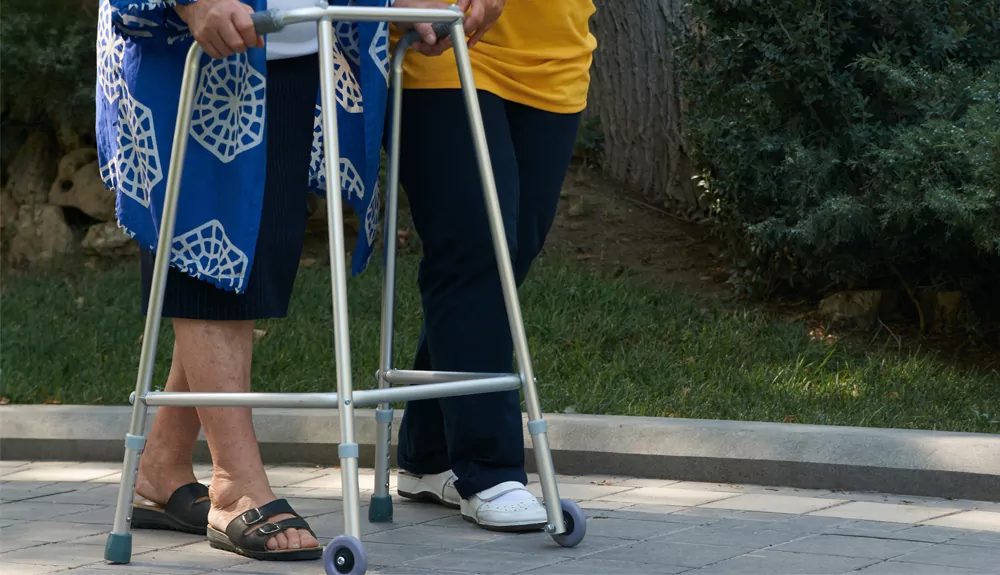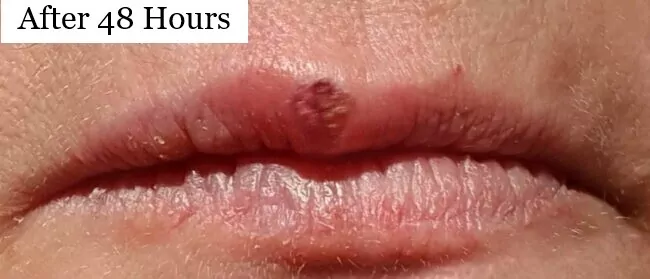Chronic inflammation is one of the most common diseases of our time. Its causes are many and varied, largely lifestyle-related. Here are the most important things to know.
What is chronic inflammation?
Chronic inflammation is a prolonged, often low-intensity inflammatory process that can last for months or even years. If it develops and you don’t treat the cause, it can plague your daily life for the rest of your life.
It must be distinguished from acute inflammation, which is rapid, short-lived and usually has very strong symptoms such as redness, swelling, warmth, pain and limited movement. Acute inflammation can be appendicitis, pharyngitis due to bacterial infection or hand-socket inflammation due to excessive tool use.
Chronic inflammation is usually less noticeable. There are often no clear signs, making it difficult to detect and treat.
Some forms of chronic inflammation
Chronic inflammatory diseases and conditions can be very diverse, affecting different tissues, organs or organ systems. Some examples of chronic inflammatory diseases (not an exhaustive list!):
Metabolic and cardiovascular diseases
- Arteriosclerosis: chronic inflammation of the walls of the arteries leading to plaque formation. In the area around some plaques, a vigorous inflammatory process is triggered, which can lead to the formation of blood clots. A blood clot (thrombus) can cause a blockage in a blood vessel, which, depending on which organ it is in, can cause a heart attack, stroke or other serious, life-threatening condition.
- Type 2 diabetes: a metabolic disorder that develops as a result of excessive carbohydrate intake, with insulin resistance and glucose metabolism disorders. Constant sugar intake causes “stress” which reduces immune system activity, impairs regeneration and leads to chronic inflammation.
Autoimmune diseases
- Rheumatoid arthritis: chronic inflammation of the joints, causing swelling, pain and reduced mobility.
- Systemic lupus erythematosus (SLE): a systemic autoimmune disease affecting multiple organ systems including the skin, joints, kidneys and brain.
- Psoriasis: a skin disease that causes red, scaly skin rashes, often associated with arthritis (psoriatic arthritis).
- Permeable bowel syndrome, Crohn’s disease and ulcerative colitis: chronic inflammation of the intestinal tract, causing abdominal pain, diarrhoea and other symptoms.
Musculoskeletal disorders
Arthritis and related conditions cover a wide range of conditions and can be classified into different categories based on what causes them and how they develop.
The term arthritis covers a range of arthritic conditions. Main types:
- Rheumatoid arthritis (RA): an autoimmune disease that causes chronic, systemic inflammation, primarily affecting the joints. The immune system mistakenly attacks the synovial membrane of the joints, leading to inflammation, pain, swelling and ultimately damage to the joint structures.
- Osteoarthritis (OA). It is the most common form of arthritis, affecting mainly the older age group, and is the result of wear and tear associated with the use of joints.
- Tendinopathy involves tendon inflammation and degenerative changes in the tendon, including tendinitis (acute inflammation of the tendon). Tendinopathy is a long-lasting or chronic condition involving structural changes in the tendon and is not necessarily associated with acute inflammation. Tendinopathy may develop with the chronicity of tendinitis or with a gradual degeneration of the tendon structure.
Other chronic inflammatory conditions
- Chronic Obstructive Pulmonary Disease (COPD): an inflammatory condition of the lungs that causes dyspnoea, breathlessness, cough, phlegm in the airways.
- Fibromyalgia Chronic pain syndrome causing pain, fatigue and muscle stiffness; there is a link between fibromyalgia and chronic inflammation.
- Obesity: obesity itself has been associated with chronic low levels of inflammation, which may contribute to the development of the above and other diseases.
The role of chronic inflammation in the development and progression of various diseases is complex and remains a subject of active research. A deeper understanding of the relationship between inflammatory processes and specific diseases may contribute to the identification of new therapeutic targets and treatment strategies.
Causes of chronic inflammation
There are a number of possible causes, including persistent (or inadequately treated) infections, prolonged exposure to irritants such as tobacco smoke or polluted air, and lifestyle factors such as excess body weight or inadequate diet.
Chronic inflammation can result from a number of diseases and conditions, such as cardiovascular disease, type 2 diabetes, certain types of cancer, arthritis and autoimmune diseases such as rheumatoid arthritis and lupus.
What factors can lead to chronic inflammation
Infection
It is not the most common cause, but nowadays, due to excessive and incorrect use of antibiotics, it is possible to delay the healing of infections, leading to persistent inflammation where pathogens invade.
Nutrition – too many carbohydrates
A much more common cause. Today’s diets contain too many carbohydrates (bread, pastries, cakes, flour, pasta, pizza, fruit juices, fresh fruit available in winter and summer, energy drinks, soft drinks, snacks, ice cream, etc.). are extremely high in carbohydrates – and worse still, pure glucose and fructose. Their constant consumption makes the metabolism one-sided. If there is sugar, the body produces energy from it and what is left over is converted into fat. The constant ups and downs of blood sugar levels both increase hunger and damage cells by the substances released during sugar breakdown. Insulin resistance develops. Mitochondria are damaged and their numbers reduced by the unilateral consumption of sugar. It is now a fact that sugar oversupply is a major cause of inflammatory diseases.
Persistent stress
Stress affects the human body through several mechanisms. Persistent stress plays a prominent role in the development and maintenance of chronic inflammation
Stress effects, which can be psychological, physical or chemical stimuli, activate the body’s stress response systems, including the hypothalamic-pituitary-adrenal axis (HPA axis) and the sympathetic nervous system, all of which influence the immune system and inflammatory processes. Prolonged stress “switches off” the immune system and the body’s self-healing processes – i.e. constant stress maintains triggers and perpetuates the inflammatory state.
Stress also affects the gut microbiome. The composition of the gut bacteria changes, contributing to the development of ‘leaky gut’ syndrome, which increases inflammation.
Physical inactivity
Lack of exercise (physical inactivity) contributes to the development and maintenance of chronic inflammation. It increases the amount of adipose tissue, which produces substances that increase inflammation. It is often associated with the development of insulin resistance, altered immune system functions, increased oxidative stress, reduced diversity of the gut microbiome, psychological stress and sleep disturbances.
In contrast, regular exercise reduces inflammatory markers and can improve overall health.
Sleep deprivation
Sleep plays an important role in regulating the body’s inflammatory processes. During periods of sleep (rest), the body’s regeneration and self-healing processes are enhanced.
Sleep disturbances – sleep deprivation, sleep quality problems – interfere with the immune system and regeneration processes and are therefore closely linked to the development and maintenance of chronic inflammation.
Treatment of chronic inflammation
Treatment requires a complex and multidimensional approach, taking into account the underlying causes of inflammation, the tissues involved and the mechanisms of the inflammatory processes. The main goals of treatment are to reduce inflammation, alleviate symptoms, treat the underlying disease and prevent damage associated with chronic inflammation. Here are some key considerations and strategies in the management of chronic inflammation:
Lifestyle changes
- A healthy diet: a low-inflammatory diet with no or minimal carbohydrates and moderate protein intake. This can help reduce the body’s inflammatory response noticeably in as little as 1-2 weeks.
- Regular exercise: Moderate intensity exercise such as walking, swimming or cycling will help reduce inflammation and improve overall health.
- Stress management.
- Sleep: getting the right amount and quality of sleep is vital to regulate and reduce inflammation.
Medication.
This is almost exclusively used in medicine today, which in my opinion is completely wrong.
Inflammation itself is a symptom that draws attention to something more wrong. Painkillers, anti-inflammatories, steroids suppress the inflammatory symptom, but do not cure it.
Medication for most inflammation is like when the fire alarm in your house goes off and instead of putting out the fire, you knock the fire alarm off the wall so it doesn’t squeal. Meanwhile, the fire continues to rage.
When you go to the doctor, these are the usual prescriptions:
- Anti-inflammatory drugs: Non-steroidal anti-inflammatory drugs (NSAIDs), corticosteroids and specific anti-inflammatory drugs can reduce inflammation in a targeted way.
- Immunomodulators: for autoimmune diseases, drugs that modulate the immune system, such as biological therapies (TNF inhibitors, interleukin inhibitors) can help control inflammation.
- Disease-specific drugs to treat the underlying disease, such as heart and diabetes drugs.
As you can see from the description, they do not eliminate the underlying cause, they just suppress the symptoms. In many cases you need medication, it can be a life-saver, but it will not cure you! Change your lifestyle, especially your diet, exercise more, reduce stress and get enough rest (sleep). These will cure you, not the drugs.
Other therapies
- Physical therapy and rehabilitation: for arthritis or other musculoskeletal inflammatory conditions, physical therapy methods (physiotherapy, massage, therapeutic ultrasound, muscle stimulation, microcurrent therapy, soft laser and magnetic field therapies, etc.) improve range of motion, strengthen the muscles around the joint and reduce pain.
I find microcurrent and soft laser treatments to be the most effective in reducing inflammation. - Herbal teas and herbal supplements.
- tVNS – vagus stimulation: by activating the parasympathetic nervous system, it enhances regenerative – anti-inflammatory – processes, boosts immune system activity, reduces inflammation.


